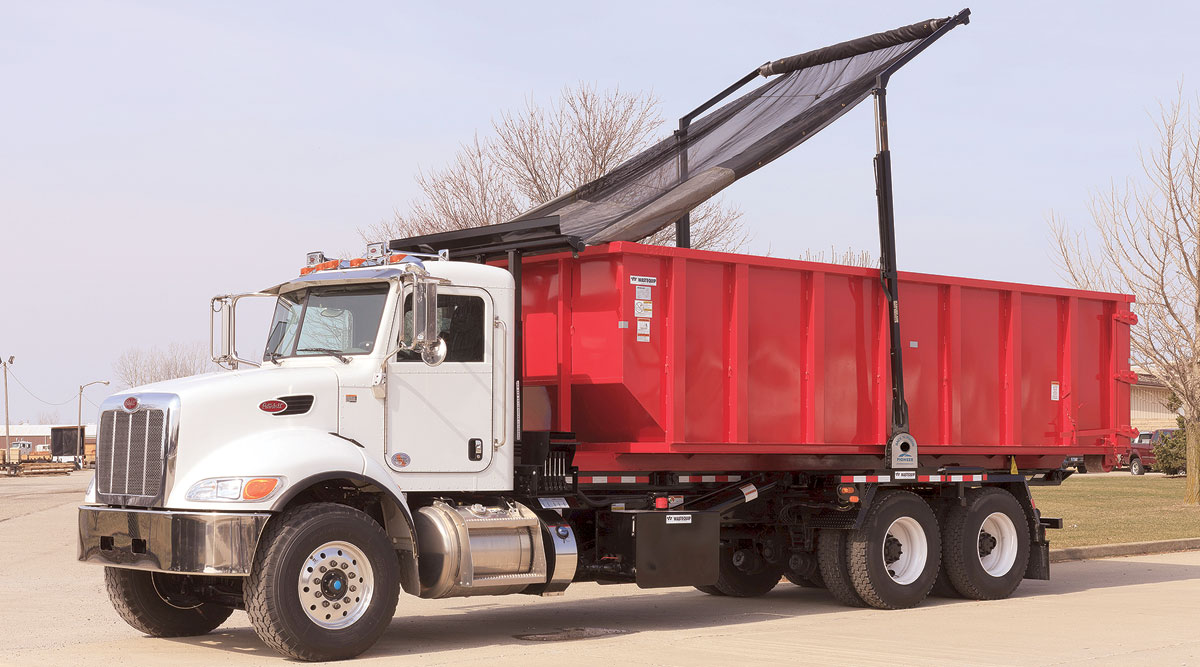Senior Reporter
Pioneer Benefits From 1967 Patent, Tarp Requirements

Truck makers and their suppliers still face years of change and innovation, largely caused by staggered federal rules covering emissions, but for tarp manufacturer Pioneer, innovation is customer- and service-driven.
The company, a brand of Wastequip Manufacturing Co., said it felt the hand of regulations lift decades ago.
The degree to which regulatory requirements forced innovations “was much more significant [for us] 30 or 40 years ago,” said John Defenbaugh, president of Wastequip’s mobile division, which includes Pioneer.
RELATED STORY: Pioneer updates tarp product
Then, the market was shifting from tarp systems not being required to meet regulations to the necessity for regulations.
 Defenbaugh via Wastequip
Defenbaugh via WastequipNow, most states have strict load-containment regulations requiring waste and other transported materials to be securely contained inside the truck, according to Pioneer.
Its tarps are widely used in the construction and refuse industries and also for excavation, paving and landscaping applications.
The North Oxford, Mass.-based company marks its 50th anniversary this year, receiving a patent in 1967 for its Rack ’n Pinion tarp system — technology that provides controlled side arm movement.
Defenbaugh said changes in truck engine preferences to natural gas from diesel also have aided innovation because of “the space restraints that that can lead to and the alterations you may need to make to have your accessory accommodate that changing configuration.”
Or innovation could come from a customer who needs an item to work better or the cycle times between wear points to be longer. “So you get feedback-type innovations,” he said.
Meanwhile, the company has gained from increased interest and sales among fleets seeking potential opportunities linked to construction, Defenbaugh said.
“We do have exposure to those end markets,” he said, referring to vocational truck sales. “Our tarping systems end up on Class 8 trucks, Class 6 trucks.”
The company is privately held, and he would not comment specifically on its revenue or earnings.
However, offsetting stronger demand, he noted, are rising commodity prices, including steel used in its products.
“Steel companies have benefited from that optimism on infrastructure build as well as the potential strengthening of tariffs on imported goods. We have seen these commodity costs increase with that [demand] as well,” Defenbaugh said.
At the same time, Pioneer and its sister company Mountain Tarp have expanded their service offerings through company-owned distributors. “These are local service centers to serve original equipment manufacturers and to provide local parts and service,” he said.
Pioneer also is expanding into “white space areas” west of the Mississippi River from its more developed base in the East, Defenbaugh said.
“Most of these are independent distributors who also have other product lines that deal with infrastructure, anything from dump trucks to roll-offs to street sweepers to vacuum trucks.”

